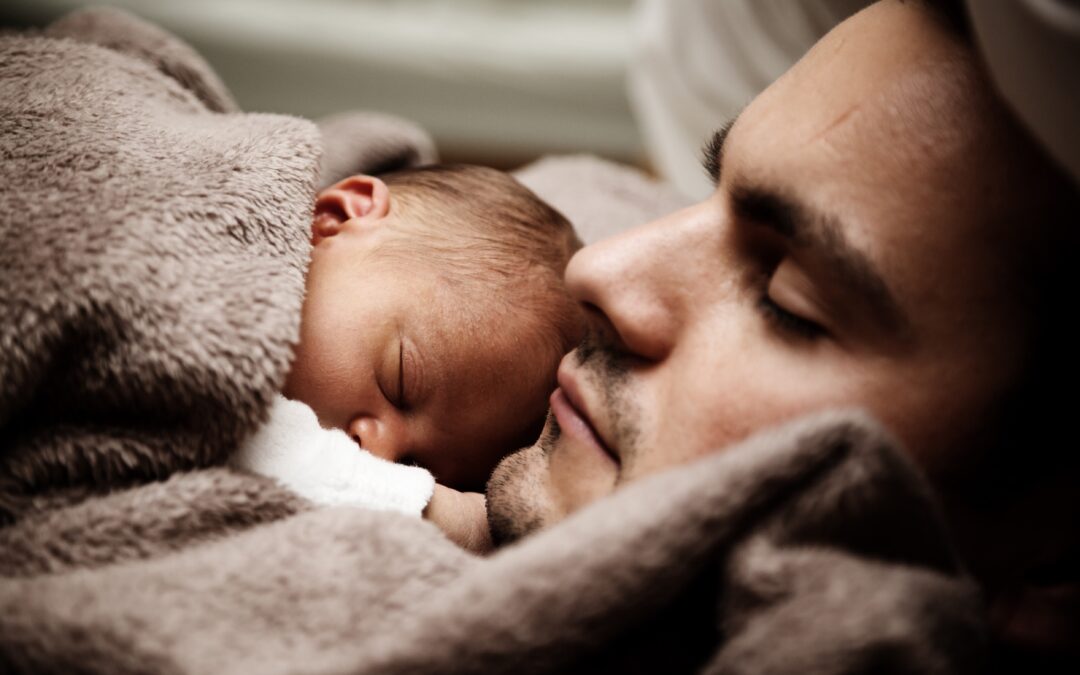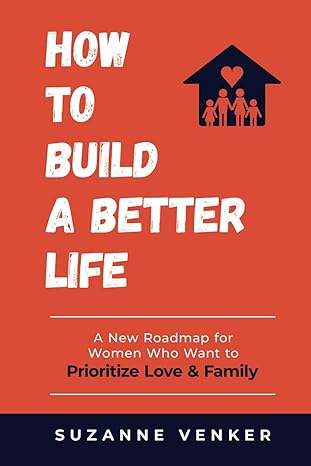Busting Common Myths About Dads
By Dr. Justin Coulson is a bestselling author, husband, and father of six. His latest book is Miss-Connection.
In the blog of Insitute for Family Studies (IFS)
IFS Editor’s Note: This article appeared first on the Happy Families blog. It has been lightly edited for clarity and reprinted here with permission.
_____________________________________________________________
I was a ‘mistake.’ Unplanned… unintended… not actually supposed to be born. My conception led to a shotgun wedding—without the shotgun. And after several volatile years where mum and dad didn’t quite know if they’d make it, things finally settled down for them. Dad moved back in. They pulled it together. And I had both parents, together, to help me through life.
Since then, my dad has been the most important male in my life, and that of my five subsequent siblings. (Yep… big family. Me, twin sisters, and then a brother plus another set of twin sisters!) We know how lucky we are to have had a dad who provided for us, protected us, and played with us.
I remember how dad took me on long drives in his truck as he moved people’s belongings, often interstate. We’d play car cricket, i-spy, and games to do with music. And we played a hand-slapping game where he put his hand on the seat between us and I had to hit his hand before he moved it. If I missed him, it was then his turn to hit mine until he missed. Brutal. But so much fun.
I remember how dad taught me about work. Moving furniture. Doing long hours. But also helping others. We mowed lawns for friends or neighbors who were unwell. We cleared land for a friend who had limited resources but just needed the job done.
And I remember how we went surfing, paddling out into the waves and pushing the limits of what felt safe. One time I was caught in a current at a place called Seal Rocks, on the mid NSW coast. Dad was the first one with a board under his arm, racing to the water to paddle out and rescue me from the thunderous waves and the relentless rip.
Perhaps one of my favorite memories of my dad occurred one night as we drove home from a scout activity I’d attended. I was around 7 or 8 years old. As we drove we saw a lump on the ground right in the middle of the dirt road we were on. Stopping, we realized it was a man. Dad climbed out of the small truck we were in and cautiously moved toward him, crouching down to see if he needed help. The man reeked of alcohol, and dad realized that he’d passed out drunk. With a lot of heaving, huffing, and puffing, dad lifted the man into the back of the truck. He inspected the guy’s wallet, found his address, and drove him home.
I’ll always remember the way my dad helped someone who, through his own poor choices, found himself in a vulnerable position. No judgment. No complaining. Just helping. I had those experiences in unique ways with my dad, and that’s because dads bring something unique to parenting.
In my case, my dad was my actual, biological dad. However, dads of all kinds are important contributors to families. Step-fathers, legal guardians, foster-fathers, grandfathers, even close family friends acting as faux fathers can all perform important roles in families. There is even a YouTuber who acts as “Dad” to 4.6 million subscribers, who turn to him for “Dadvice” about everything from how to shave a beard to how to inflate a tubeless wheelbarrow tyre.
However, the benefits of having a present and involved dad go far beyond having someone around to teach wheelbarrow maintenance. In fact, Harvard family scholars Marc Grau Grau and Hannah Riley Bowles state that “The importance of engaged fatherhood is now undismissable in ways it was not in earlier decades.”
There is a growing body of evidence demonstrating the undeniable benefits of involved fatherhood—to the family, to the kids, to the mom, and even to the father himself. Here are a few highlights:
Benefits to the family
- Higher levels of family income
- Reduced risks of poverty
- Increased time flexibility
Benefits to the kids
- Reduced rates of prematurity and infant mortality
- Less crying as newborns
- Fewer academic challenges
- Reduced risk taking behavior and delinquency in adolescence
- Fewer behavioral challenges
- Fewer mental health challenges
- Increased physical activity levels
- Less substance abuse
- Better social functioning and fewer romantic relationship problems
- Reduced risk of early sexual experiences and teen pregnancy
- Increased earning potential as adults
Benefits to Mom
- Fewer health problems as mothers
- Ability to offer higher quality parenting
- More time for leisure activities
- Increased mental and emotional well-being
Benefits to Dad
- Greater engagement in service organizations
- Improved diet and physical activity
- Decreased risky behaviors
- Decreased alcohol use
- Strengthened intergenerational family ties
Myths About Fatherhood
Despite the established benefits, there are still many people who believe that dads aren’t that important. At the very least, they’re not as important as moms. This belief is reflected all across society.
Additionally, there are some other myths that get in the way of some dads being great dads.
- Men lack instincts for knowing how to care for and communicate with their babies
- Babies form an earlier, stronger, more beneficial emotional bond with their mums than their dads
- Compared to moms, dads are naturally less empathic and less skilled at communicating
- The load between fathers and mothers is already equally distributed
- Dads aren’t as competent as mothers
Fact 1—Parenting is learned
Contrary to popular belief, parenting instincts aren’t that much of a thing. While it is true that both men and women undergo unique hormonal and brain changes to enhance bonding, nurturing, and communicating with their babies, much of parenting is learned. It has been suggested that we have traded instincts for the flexibility that comes with a learning, reasoning brain. This flexibility means that both men and women can readily learn the tasks required for child-rearing.
Fact 2: Babies form bonds equally between both mom and dad
Babies don’t seem to form emotional bonds with anyone until about 7-9 months of age. At this point, they form equally strong, equally beneficial bonds with mom and dad. However, these bonds are likely to differ slightly, with many mothers serving as the primary attachment figure while fathers typically foster secure exploration. While these roles are not inherently gendered, and both mothers and fathers are able to foster both attachment and exploration, many parents naturally fall into these complementary roles.
Fact 3: Dads and moms are equal on empathy and compassion
No significant differences exist between males and females on empathy or communication. Any perceived differences typically come down to conformity with gender stereotypes; for example, while there are no intrinsic differences in levels of empathy, men may be less likely to describe themselves as sensitive and emotional. This means that dad can also be a kind, nurturing presence in the home.
Fact 4: The distribution of child care can still be improved
While fathers in nations such as Australia have tripled the amount of time that they spend with their kids since 1970, there are still inequalities between the amount of time men and women are devoting to child care. The average Australian woman spends 86 minutes a day on child care, while the average man spends less than half that. Not only do mothers provide more care for their children in terms of absolute time, but the quality of time they spend with their kids is also different. Mothers spend a greater proportion of their time on tasks such as transporting their children and providing meals, while men spend a greater proportion of their child care time playing and talking with their kids. There is still plenty of room for men to step up.
Fact 5: Dads aren’t stupid
We still have a culture that makes dads look stupid. They’re not. Fortunately, good TV dads such as Bandit (Bluey) are beginning to displace the stupid dad depictions such as Homer Simpson (The Simpsons) and Peter Griffin (Family Guy). Given that there are no differences in general intelligence between men and women, there really is no reason to keep believing that moms are more competent or more clever than dads.
How to Dad
So what are the best ways for dads to do “dadding”? Is it just about showing up? Or is there helpful stuff we can do? Here’s a few things dads can do to be uniquely helpful:
1. Take paternity leave.
Fathers who take paternity leave, especially if they take at least two weeks, are significantly more likely to dedicate their time to child care and housework, not only during their leave period, but at least until the child is two to three years old!
2. Be present.
It seems simple, but remember that having a present father in the home is a protective factor for reducing anti-social behaviour in boys, and reducing teen pregnancy, depression, and early sexual activity in girls
3. Share the load.
Remember Fact #4? It’s highly likely that the distribution of child care and housework tasks isn’t as even as you might like to believe it is. By stepping up and sharing the load, fathers can help close the gender gap even further, model for their children how healthy relationships function, and set expectations for their children’s future relationships.
4. Play.
Dads play in unique ways, particularly by encouraging risk taking and exploration. The sort of vigorous, stimulating rough-housing play that dads are so great at predicts enhanced social competence, while decreasing externalizing and internalizing behavior problems.
5. Read to your kids.
Reading books together, telling stories, and singing songs to the kids are all important forms of cognitive stimulation which have established benefits for improving literacy outcomes in children. Interestingly, these benefits are more pronounced when dad does the storytelling.
6. Talk with your kids
Dads also engage in a unique communication style with their kids. Fathers seem more likely to use bigger words when they speak to their children. Moms keep it simple. Both forms of communication are valuable for kids, but a report from the American Academy of Pediatrics points out data showing that “at 3 years of age, father-child communication was a significant and unique predictor of advanced language development in the child but mother-child communication was not.”
7. Engage in discipline
To discipline means to instruct, teach, and guide. Parents can effectively discipline their kids by setting limits in a way that explores what’s going on, explains our reasoning for desired behavior, and empowers kids to problem solve and come up with reasonable ways forward. Fathers are typically more authoritarian than mothers, so as a dad you may need to work harder to move away from coercive and punitive discipline methods.
Fatherhood Matters
There’s so many other things dads can do to be excellent fathers. But here’s the vital thing: Fatherhood matters. Period. Even if dad is not in the family home. Even if dad is not married or together with mom. Even when it’s not part of the ‘package’ deal. (Which is, by the way, ideal, but the world is far from perfect.)
I’m a dad to 6 daughters. All six girls were born to my wife. The first was born about 18 months after our marriage. And we remain together today, some 25+ years later. That means that I have a lot more hands-on experience at “dadding” than a lot of other dads out there. But it doesn’t mean that my experience of being a dad is the only valid way to be a good dad.
In Australia, there are more than 1 million single-parent families, and the vast majority of those families are mother-led. Additionally, data from the US suggests that 27% of non-resident fathers have not seen their kids at all in the past year. That is a lot of kids who are growing up with absent fathers.
Being a divorced man can never be an excuse for being a distant dad. Just because the marriage didn’t succeed (or the partnership fell apart) doesn’t mean that you’re a failure, that you’re on the bench, and that you have nothing to give. Au contraire. It matters as much or more.
And for fathers who have biological children with more than one woman, the greater complexity of your family structure doesn’t get you off the hook. All of your children are equally deserving of your time, energy, and love.
Living away from your kids does not mean that you can’t provide them with the benefits of having an involved father. A meta-analysis of 52 studies finds clear support that involved non-resident fathers can still have a positive impact on their children’s academic achievement, behavioral adjustment, and emotional well-being. Being involved matters. Having a positive father-child relationship matters. Taking an interest in your child’s activities matters. Spending time with the kids matters.
Mothers are not fathers. Mothers can’t fill in for absent fathers; they can’t provide their children with all the benefits that come from having involved and present fathers in their lives.
And fathers are not mothers. They don’t parent in the same way. Instead, they provide unique, important contributions to their families, contributions that should not be dismissed or devalued.
The views expressed by the authors of videos, academic or non-academic articles, blogs, academic books or essays (“the Material”) are those of the author(s) and do not necessarily reflect the views of the members of the Global Wo.Men Hub. In sponsoring the publication of this material, Global Wo.Men Hub considers that it contributes to useful debates in society. The material could therefore be published in response to others.







Commentaires récents